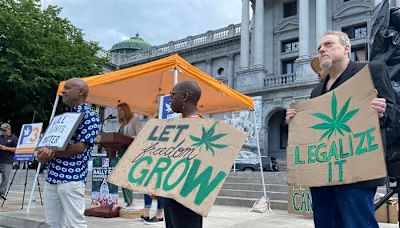Introduction
The green rush is real. Cannabis legalization is not just transforming personal wellness and social norms—it’s rapidly redefining local economies. As more states and countries adopt cannabis-friendly policies, billions of dollars are flowing through new industries, thousands of jobs are being created, and once-declining communities are experiencing revitalization. This article dives deep into how cannabis legalization is economically reshaping cities, states, and entire nations.
The Economic Power of Legal Weed
Since Colorado and Washington pioneered adult-use cannabis legalization in 2012, the economic data has been staggering. According to Leafly’s 2024 Jobs Report, over 428,000 full-time cannabis jobs exist in the United States alone. That number continues to grow as more states come online.
In California, the cannabis industry generated over $5 billion in taxable sales in 2023. In Illinois, adult-use legalization brought in over $445 million in tax revenue within just two years. These funds are often reinvested in public schools, mental health programs, infrastructure, and social equity initiatives.
Job Creation: From Budtenders to Botanists
The cannabis industry is creating jobs at every level:
- Retail: Budtenders, store managers, security personnel.
- Cultivation: Growers, trimmers, agronomists.
- Production: Lab technicians, extractors, packaging line workers.
- Logistics: Drivers, warehouse coordinators, supply chain analysts.
- Corporate: Marketing, compliance, finance, legal.
Unlike many tech-dominated industries, cannabis offers opportunities for workers without advanced degrees—making it a key driver of blue-collar employment.
Tax Revenue and Public Benefit
Legal cannabis has become a goldmine for state and local governments. Sales taxes, excise taxes, and licensing fees create new revenue streams that don’t rely on raising income or property taxes.
Examples include:
- Michigan: Over $300 million in marijuana taxes funded roads, schools, and veterans services.
- Nevada: Cannabis taxes have been funneled into the state’s education budget.
- Oregon: Cannabis revenue supports drug prevention, law enforcement, and mental health.
Real Estate & Urban Revitalization
Vacant warehouses and abandoned properties in industrial zones are now being transformed into thriving cultivation centers and retail dispensaries. This has triggered a wave of urban revitalization:
- Increased demand for commercial real estate.
- Higher property values near legal dispensaries.
- Downtown business corridors rebounding with foot traffic.
In cities like Denver, Detroit, and Las Vegas, cannabis has revitalized once-forgotten neighborhoods.
Cannabis Tourism: A Growing Niche
Legal states like Colorado and California are becoming cannabis tourism hubs, attracting:
- Out-of-state visitors seeking legal access.
- Tours of grow facilities and dispensaries.
- Cannabis-infused dining and wellness retreats.
According to Forbes, cannabis tourism adds millions in hospitality and entertainment spending—boosting hotels, restaurants, and local attractions.
Equity Programs and Community Investment
Legalization has increasingly focused on reinvesting in the communities most harmed by the War on Drugs. Social equity programs are designed to:
- Provide business opportunities for minority entrepreneurs.
- Fund job training and cannabis education.
- Offer grants and low-interest loans to new licensees.
These efforts ensure that the economic boom is inclusive and just.
Challenges: Federal Law and Banking Barriers
Despite state-level success, cannabis remains federally illegal in the U.S. This creates ongoing challenges:
- Lack of access to traditional banking and loans.
- Higher costs due to limited deductions under IRS Code 280E.
- Insurance and risk management difficulties.
Still, the industry has adapted with cannabis-specific financial services and legal workarounds. Federal legalization or SAFE Banking reform would unleash even more growth.
Cannabis and the Future of Entrepreneurship
Cannabis is now seen as a frontier for innovation. Entrepreneurs are launching:
- Cannabis beverages (e.g., Dr. Budsy’s Medicated Hooch)
- Subscription boxes and personalized dosing kits
- Cannabis delivery platforms and retail apps
- Ancillary tech and data analytics firms
These startups are drawing investors, venture capital, and creative talent from every corner of the economy.
Cannabis and the Green Economy
Legal weed aligns with broader sustainable and regenerative economic goals:
- Many grow ops use solar or recycled water systems.
- Hemp derivatives are fueling bioplastics and eco-textiles.
- Organic and sun-grown cannabis brands promote environmental stewardship.
The intersection of cannabis and climate is becoming a key theme in industry marketing and policy.
SEO Strategies for Cannabis Entrepreneurs
If you’re operating in or entering the cannabis industry, here’s how to harness SEO to attract traffic and sales:
- Use high-search keywords like \”legal weed near me,\” \”buy THC drink,\” or \”cannabis jobs in [state].\”
- Create local content targeting your city or neighborhood.
- Add schema markup for dispensary listings.
- Write blog posts explaining laws, product types, and benefits.
- Focus on long-tail keywords like \”benefits of cannabis over alcohol\” or \”how to start a weed business.\”
Conclusion
Cannabis legalization is more than a political movement—it’s an economic revolution. From job creation to social equity, real estate to tourism, legal weed is revitalizing communities and rewriting the rules of prosperity. Whether you’re a policymaker, entrepreneur, or conscious consumer, now is the time to explore how cannabis can power the next chapter of local economic development.
Meta Description: Discover how cannabis legalization is transforming local economies through job creation, tax revenue, real estate growth, and social equity initiatives.








